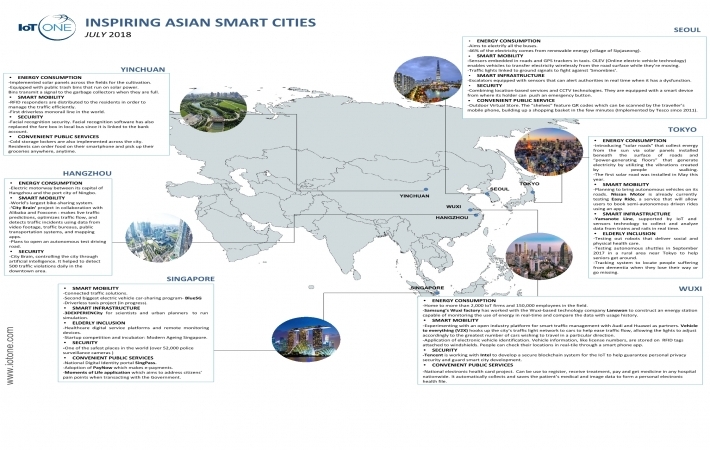
Published on 07/18/2018 | IoT Index
What Makes a City Smart?
Smart cities put data and digital technology to work to make better decisions and improve the quality of life. More comprehensive, real-time data gives agencies the ability to watch events as they unfold, understand how demand patterns are changing, and respond with faster and lower-cost solutions.
Three layers work together to make a smart city hum. First, the technology base, which includes a critical mass of smartphones and sensors connected by high-speed communication networks. The second layer consists of specific applications. Translating raw data into alerts, insight, and action requires the right tools, and this is where technology providers and app developers come in. The third layer is usage by cities, companies, and the public. Many applications succeed only if they are widely adopted and manage to change behavior. They encourage people to use transit during off-hours, to change routes, to use less energy and water and to do so at different times of day, and to reduce strains on the healthcare system through preventive self-care.
Benefits of Smart Cities
A key feature of smart cities is that they create efficiency. Well-designed technology tools can benefit government agencies, the environment, and residents. Smart cities can improve the efficiency of city services by eliminating redundancies, finding ways to save money and streamlining workers’ responsibilities. The results can provide higher-quality services at lower cost.
Another way to save money involves real-time monitoring of energy use, which can also identify opportunities for environmental improvement.
Perhaps the largest potential benefit from smart cities will come from enhancing residents’ quality of life. The opportunities cover a broad range of issues, including housing and transportation, happiness and optimism, educational services, environmental conditions and community relationships.
Singapore usually tops the rankings when it comes to implementing smart city technologies. Seoul, Tokyo and a few growing cities in China (Wuxi, Hangzhou, Yinchuan) have also been noticed for their numerous experiments with the Internet of Things technologies, artificial intelligence and robotics to improve the experience of their citizens. According to International Data Corporation (IDC), global spending on smart cities is forecasted to reach $80 billion in 2018, with China itself accounting for more than 25% of that amount.
IoT ONE will chair the moderator panel and be on the judging panel for IoT World Asia in Singapore, taking place on September 18 to 20.